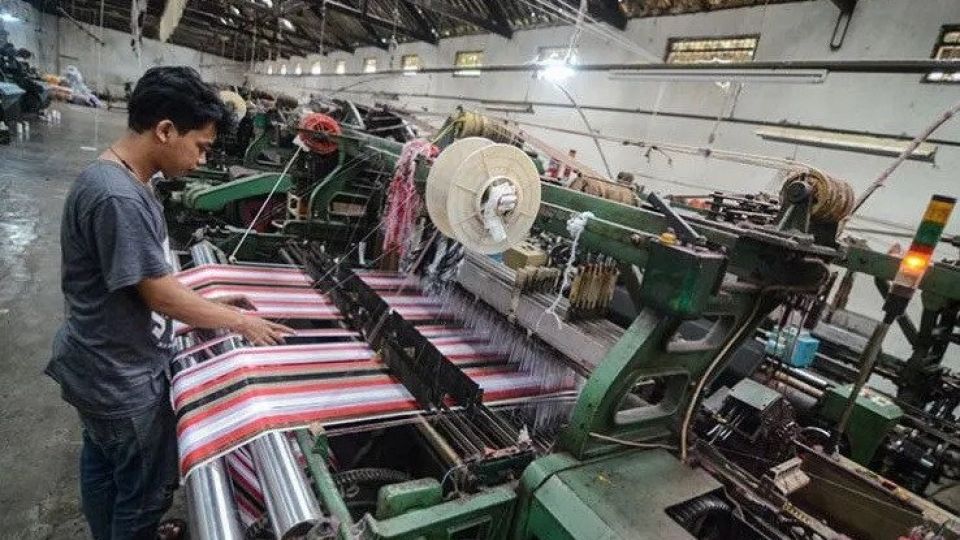June 23, 2023
JAKARTA – More workers are expected to head to the chopping block in the Indonesian textile industry later this year, as companies face a prolonged slowdown in the export market.
Indonesian Textile Association (API) executive director Danang Girindrawardana said on Wednesday, approximately 12,000 workers from five textile companies would be impacted by the cost-cutting measures, which he expected would take place in the third quarter this year.
The measures will come in three possible forms, namely layoff, contract termination or shorter working hours, the latter resulting in lower monthly wages.
“This is our last resort, which we will do by rationalizing our workers,” Danang said, as quoted from Katadata.
Read also: Textile industry faces layoff storm amid ailing exports
Firms in the textile industry have made attempts to prevent a larger round of layoffs by reducing production costs, lobbying for the improvement of policies or laws and spreading information related to the anti-illegal import movement, he said.
The International Monetary Fund (IMF) has projected world economic growth to decline to 2.8 percent this year from 3.4 percent last year.
The drop is projected to be contributed by advanced economies, primarily the United States and European countries. This group is projected to see economic growth fall to 1.3 percent this year from 2.7 percent last year.
Jemmy Kartiwa Sastraatmaja, who chairs the API, told lawmakers on Wednesday that exports of Indonesian textiles had continued to decline over the past few months. Jemmy explained that exporting countries faced difficulties finding new markets.
To make matters worse, many exporting countries ended up targeting Indonesia as an alternative market amid the slowdown that has struck the majority of Western markets like the US and Europe, he said.
Now, many textile firms in the upstream segment have seen their utilization rate drop below 50 percent with several having to shut down their operations.
“The textile industry requires regulatory protection. We can learn from other nations such as China, Bangladesh, Turkey and India, where the textile industry is highly controlled due to employing workers from upstream to downstream,” he said, as quoted by Kompas.
Jemmy also proposed that Indonesia’s People’s Representative Council and the government establish a dedicated agency that protected Indonesia’s textile sector and textile products.
Indonesian Employers Association (Apindo) chairwoman Shinta Widjaja Kamdani told reporters on June 15 that it was hard to see when the wave of layoffs would end. She expected it to continue until the end of this year with the global economy expected to remain weak.
“We hope next year there will be recovery in the industry,” Shinta said.
Read also: Workers, employers clash over rule letting firms slash pay by 25%
This March, the government granted businesses a rule that allows them to slash payments by 25 percent, but only applicable to those in the textile, footwear, leather goods, furniture or children’s toys industries and which rely heavily on foreign demand.
The cut comes after the Manpower Ministry allowed firms to temporarily cut working hours to less than the usual 40 hours a week.


